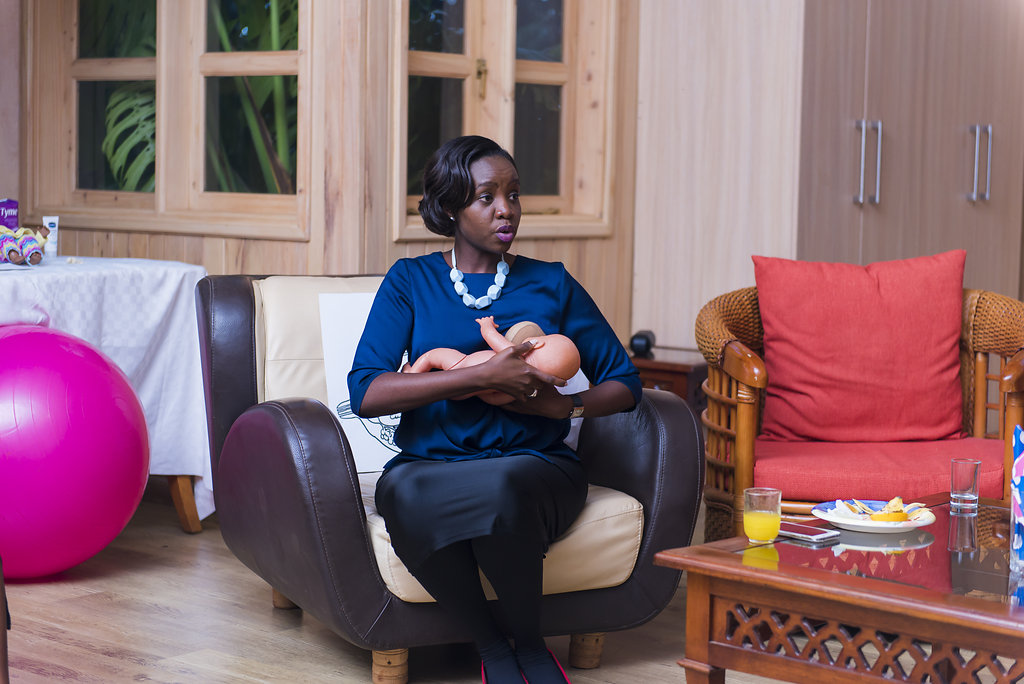Joyce Chimbi (Lead Writer)
“Three years ago, my life changed in ways I could never have imagined. I lost a six-month-old pregnancy, followed by two other miscarriages. One day, my domestic help told me that some neighbours were saying that I must have had an abortion that weakened my womb,” said Nyambura Kamau, a Nairobi-based project officer in a local Non-Governmental Organisation (NGO). “Exiting a pregnancy empty-handed pushes you into levels of pain, anguish and bitterness that are impossible to explain. My heart was bleeding. You cannot run away from feeling responsible, and I started to believe that somebody bewitched me,” she shared.
Kamau’s long and traumatic journey with maternal depression started in 2020. She felt better speaking about it; however, after some time, she retreated into a mental cocoon where the line between reality and fiction blurred. “The stigma was overwhelming, and I even considered suicide,” she said. Unknowingly, Kamau would speak out loud to an imaginary baby and hold conversations with imaginary people about an imaginary baby. Extremely alarmed, her family intervened, and she successfully recovered with support from Still A Mum’s network of counsellors and experts in psychosocial support.

Maternal mental health challenges are one of the most pressing public health issues in Kenya due to the scale and magnitude of miscarriages and neonatal and infant deaths. Here, the stillbirth rate stands at 19 per 1,000 total births and in the last three years, out of all the pregnancies in Kenyan women between the ages of 15 to 49 years old, 10 percent were miscarriages. These figures represent a huge burden for bereaved families and signify the need for affordable, accessible and quality maternal mental health services.
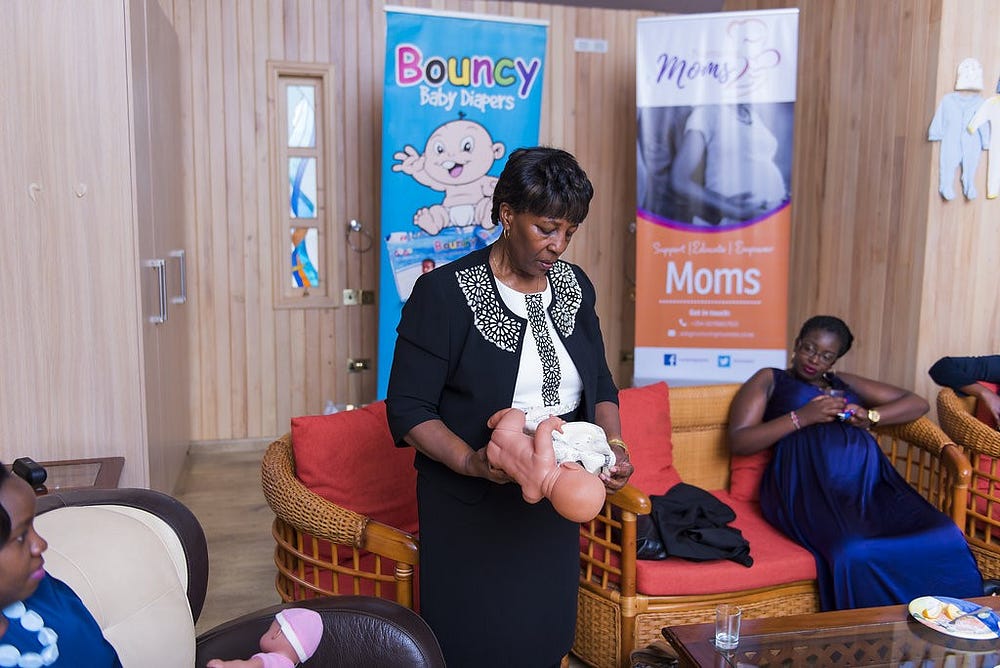
Giving hope to mums
Kenya-based Still A Mum is an organisation focused on a holistic approach to maternal mental health, with the goal of breaking down the culture of silence and stigma surrounding child and pregnancy loss. It was formed against the backdrop of a life-altering loss and the futile search for mental health and psychosocial support after the founder — Ms Caroline Wanjiru Kihusa, lost her first pregnancy at 20 weeks, in November 2013.
Kihusa’s own lived experiences has enabled her to develop mental health support packages to meet a most pressing need; getting affected women and families back on their feet after the devastating loss of a child or pregnancy. Speaking of her own experience, she says the loss was preceded by a very difficult pregnancy and a late miscarriage.
“I quit my job after the loss of the baby. I was at home grieving, with no job and no baby. One day, I wrote a blog about our loss, and a lot of people wrote back, showing me love and compassion. I also received many me-too stories — a majority of them asked for recommendations to a support group or counselling centre specifically for maternal health. I did not find such a place and decided to start Still A Mum in 2013, and the official launch was in 2015,” Kihusa recounts.
According to the Kenya Demographic and Health Survey 2022, the neonatal mortality rate is 21 deaths per 1,000 live births, the infant mortality rate is 32 deaths per 1,000 live births, and the under-5 mortality rate is 41 deaths per 1,000 live births. Behind these figures are women in dire need of both short- and long-term bereavement support. Maternal mental health challenges are further compounded by situations where the pregnancy was preceded and succeeded by difficulties in conceiving again. Kihusa lost a second unborn baby through an early miscarriage and underwent an unsuccessful in vitro fertilisation (IVF) procedure. She later conceived — unassisted — and successfully delivered her now six-and-a-half-year-old son.
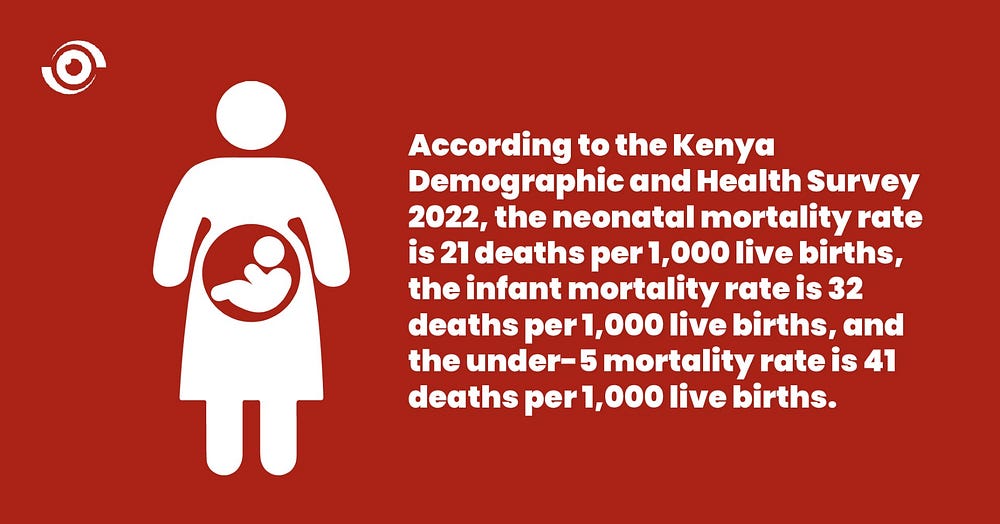
Still A Mum- A place to heal
Still A Mum was started as an online and offline non-profit organisation focused on maternal mental wellness after a miscarriage, stillbirth, or infant loss. The organisation recognised that worsening maternal mental health can have a negative impact on a woman’s physical health as well as her ability to perform the traditional, (but not exclusive) roles often of women: reproductive, productive and caregiving.
Providing adequate care and support to bereaved mothers cannot be overstated. After losing two unborn babies, Kihusa and the Still A Mum team worked to address the impact of poor maternal and neonatal outcomes, with the objective of preventing a maternal mental health crisis that includes debilitating mental stress that can lead to anxiety, paranoia and even alcohol abuse.
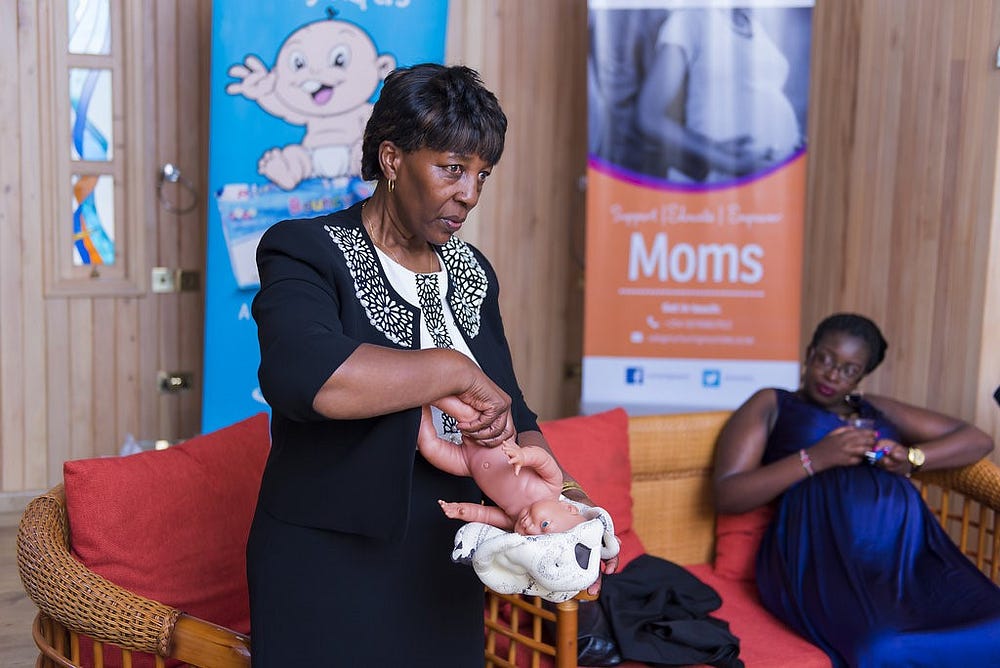
Over the years, Still A Mum has continued to achieve these objectives by offering 14 different services, including child loss bereavement support, loss and grief individual therapy, child and adolescent counselling and postpartum depression support through individual and group therapy, in-person and online sessions. So far, the organisation has worked with at least 6,000 women who have lost a baby through a miscarriage, stillbirth or infant loss. Shattering myths around pregnancy and child loss and shining a spotlight on these taboo subjects to fill gaps within the context of newborn deaths.

Rael Okoth, a Ministry of Health integrated Community Health Volunteer (CHV) and trained midwife, works with the Still A Mum team. She stated that there is often more focus on the cause of miscarriage and very little to no support for grieving mothers. “The woman is always blamed for the loss, and very unkind and unhelpful things are said.”
Breaking the culture of silence
Still A Mum focuses on a range of issues, including child loss, pregnancy loss and motherhood struggles that can deteriorate a woman’s mental health, “No matter how long a woman had a baby — one month, six years or 30 years — we are all still mums. No one is more a mother than the other,” she said.
According to Kihusa, when the Still A Mum initiative commenced, there was a strong culture of silence around child loss. However, there has been recorded progress, especially in urban areas where women increasingly refuse to suffer in silence. Yet, in the rural areas, where the burden of child loss is heaviest — the situation is more complicated because “a true African woman is expected to show strength by bearing her pain and troubles in silence,” Kihusa says. In African countries, traditional beliefs impact perceptions of mental health and maternal mental health.
Okoth added that interventions around maternal health is sometimes hindered by the lack of statistics on the status of maternal mental health, which would help measure the true magnitude of the problem. Kenya currently does not have a record of national surveillance data on mental health in general or the disease burden associated with mental health. Hence, “There is a need to engage government so things can begin changing at the policy level,” she stressed.
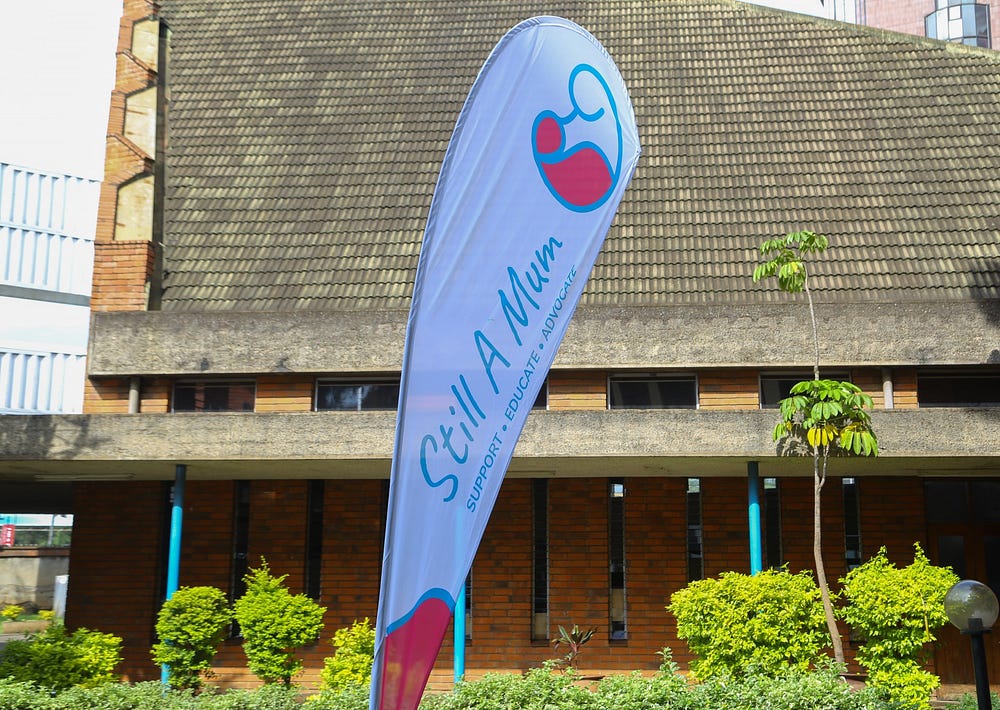
Still A Mum also partners with government offices, and affiliated organisations to develop maternal mental health laws, and was instrumental in amending the Kenya Employment Act to allow parents who have lost a baby or have premature babies to take maternity and paternity leave.
Recognising mental health
Part of Still A Mum’s efforts include campaigns to encourage pregnant women to attend at least four mandatory prenatal visits in order to prevent home births and maternal deaths, while also emphasising respectful bereavement care as part of respectful maternal care.
Kihusa observed that some critical measures have been adopted in public health facilities (Kenyatta National and Referral Hospital, Mbagathi Hospital both in Nairobi and Moi teaching and Referral hospital in the Rift Valley) in Kenya, especially in terms of prompt care and attention for bereaved mothers. Measures such as moving bereaved women out of the labour ward after the loss of a baby to ensure that they do not have to sleep in a room where newborns are crying.

Recognising the importance of mental health support in reducing the burden of maternal mental health, Still A Mum works with counsellors and psychologists who are qualified and trained in counselling and psychology. Grief and Bereavement Counsellors and psychologists receive training on the grieving process. The training explains how to support someone going through grief, discusses the many types of grieving, and offers advice on how to help in each situation. There has also been training for midwives and healthcare workers to provide maternal mental health care.
Maternal mental disorders are treatable, and interventions can be delivered through trained non-health providers. There is a need to scale up maternal mental health care in Kenya through Kenya’s network of CHVs. Kenya has a network of 100,000 CHVs who have effectively intervened in preventable and curable diseases, including COVID-19. These health volunteers are now integrated into the Ministry of Health, they are spread nationwide, and can deliver maternal health interventions.
However, in order for Kenya to improve maternal healthcare outcomes, it is also important that maternal mental health is mainstreamed or integrated into the maternal health package as part of a holistic and comprehensive approach to improve women’s health.


